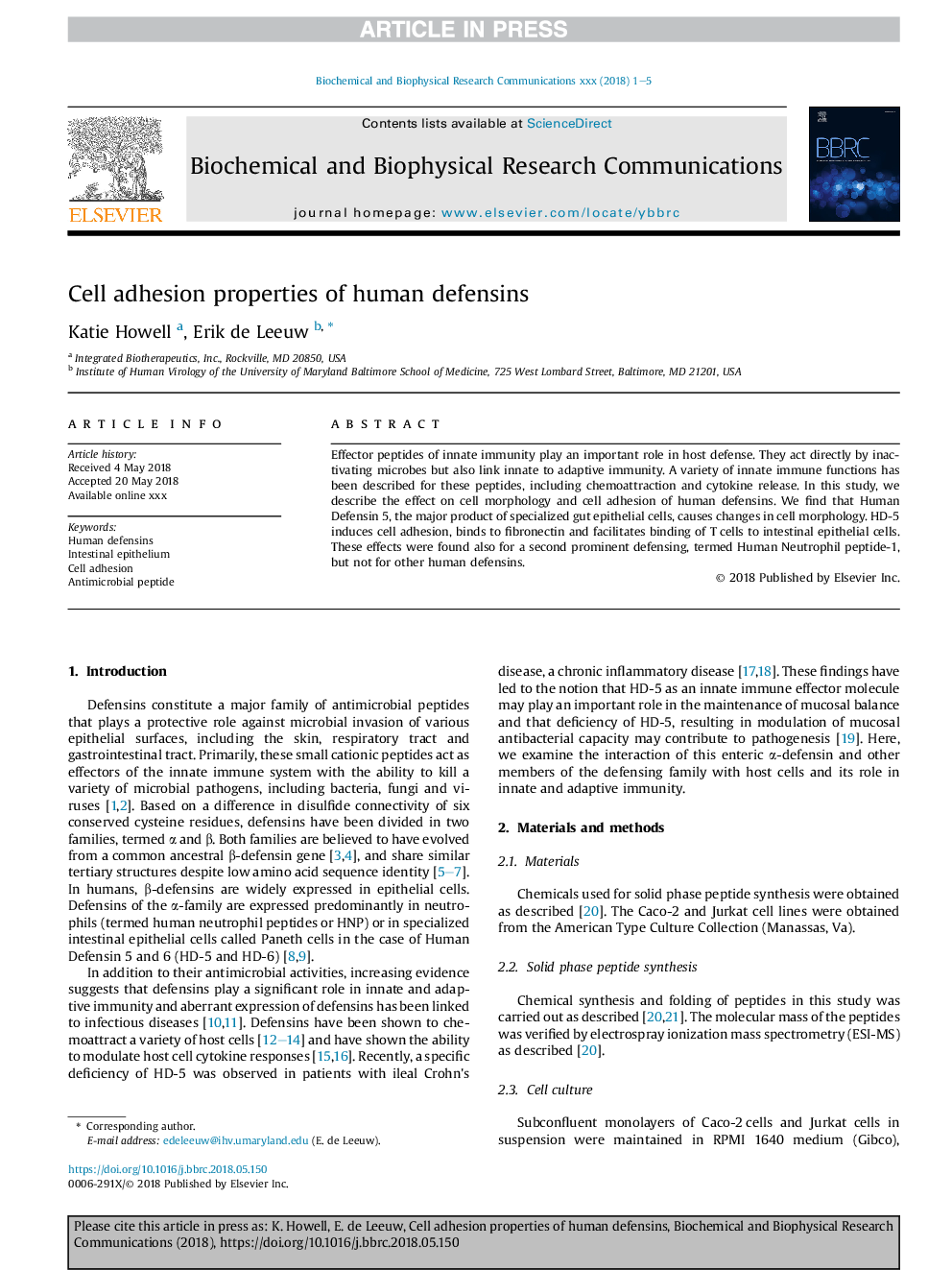| Article ID | Journal | Published Year | Pages | File Type |
|---|---|---|---|---|
| 8292397 | Biochemical and Biophysical Research Communications | 2018 | 5 Pages |
Abstract
Effector peptides of innate immunity play an important role in host defense. They act directly by inactivating microbes but also link innate to adaptive immunity. A variety of innate immune functions has been described for these peptides, including chemoattraction and cytokine release. In this study, we describe the effect on cell morphology and cell adhesion of human defensins. We find that Human Defensin 5, the major product of specialized gut epithelial cells, causes changes in cell morphology. HD-5 induces cell adhesion, binds to fibronectin and facilitates binding of T cells to intestinal epithelial cells. These effects were found also for a second prominent defensing, termed Human Neutrophil peptide-1, but not for other human defensins.
Related Topics
Life Sciences
Biochemistry, Genetics and Molecular Biology
Biochemistry
Authors
Katie Howell, Erik de Leeuw,
